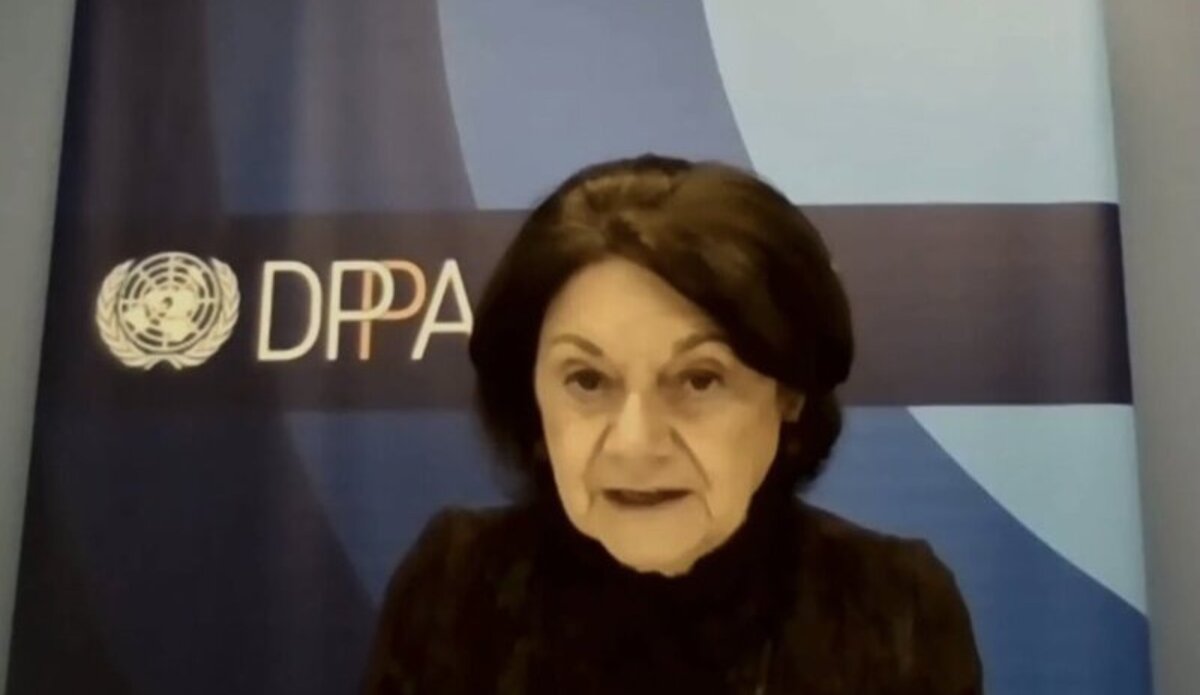Thank you, Mr. Chairman. Mr. Chairman, distinguished delegates,
On behalf of the Secretary-General, I have the honour to introduce the report: Strengthening the role of the United Nations in enhancing periodic and genuine elections and the promotion of democratization (A/76/266). In line with General Assembly resolution 74/158 of 18 December 2019, the report reviews developments in the field of elections and United Nations electoral assistance to Member States over the last two years.
During this period, the United Nations assisted, at their request or based on a Security Council mandate, more than 60 Member States in conducting elections. In response to challenges posed by the COVID-19 pandemic, we adjusted our work processes to the needs of Member States, as required.
I am particularly pleased – and humbled – that so many Member States call upon us to support them in fulfilling such a fundamental responsibility. Genuine elections give people a real say in how their countries are run. Democratic legitimacy and authority depend on the conduct of credible, fair, transparent and participatory polls.
As before, UN electoral assistance was provided to Member States as a system-wide endeavour involving the Department of Political and Peacebuilding Affairs, the Department of Peace Operations, UN missions on the ground, and the United Nations Development Programme. Other UN partners include the Office of the High Commissioner for Human Rights; UN Women; UNESCO; and UNOPS. In non-mission settings, Resident Coordinators have provided strategic leadership and facilitated coherence of electoral assistance by UN country teams.
The Under-Secretary-General for Political and Peacebuilding Affairs is designated by the General Assembly as the UN focal point for electoral assistance. In carrying out this mandate, I strive to ensure system-wide coordination and coherence among these partners. Beyond the UN, we strengthened partnerships with regional and subregional organizations, and promoted South-South and triangular cooperation during this period. For example:
- We supported the League of Arab States to improve its electoral database and institutional memory. We also assisted it to conduct virtual training sessions on gender and elections.
- The Organization assisted the Arab Organization of Electoral Management Bodies in responding to the pandemic and supported electoral management bodies in the Arab region to establish the Arab Network for Women in Elections.
- The UN also works closely with the AU. We coordinate through the joint UN-AU Technical Working Group on Elections as well as on thematic issues such as gender and elections and preventing electoral violence. The UN deployed a senior expert to the UN Office to the African Union to support electoral processes, particularly in electoral crisis situations and to support the Democracy and Electoral Assistance Unit of the AU.
Mr. Chairman,
As a result of the COVID-19 pandemic, Member States faced difficult choices in deciding whether and how to proceed with scheduled elections. This meant navigating complex legal, political, and public health considerations.
Globally, the crisis drew attention to the fragility of the foundations on which credible elections are built. But this is an opportunity for Member States to reflect on what makes these foundations vulnerable and how to reinforce them. Future decisions that have a significant impact on an electoral process – such as a postponement in the face of a public health crisis – should involve broad consultation across the political spectrum, with the aim of reaching consensus.
Online tools have enabled participation in elections on an unprecedented scale. But they have also been used to spread disinformation and hate speech and incite violence. Political leaders have a role to play in tackling these harmful uses of online platforms and social media during elections. Moreover, government may adopt regulatory responses to hate speech that are carefully balanced against fundamental freedoms and rights.
Furthermore, social media companies can play a role in developing policies to monitor and address online harassment and hate speech, in line with international human rights law. Leaders are encouraged to mutually agree on, or voluntarily commit to, standards of responsible leadership during electoral processes, including with regard to online activities.
Mr. Chairman,
While the number of women elected or appointed to decision-making positions has risen, much more needs to be done. According to data maintained by the Interparliamentary Union, women’s representation in lower or single houses of parliament worldwide is only just over 25%.
Accelerating women’s full and effective participation in public life requires a renewed commitment. In certain contexts, temporary special measures, such as gender quotas, have been successful in increasing women’s representation to elected office. Moreover, concrete steps are needed to prevent and respond to violence against women in politics; new forms of harassment and violence against women, including online, continue to emerge, particularly so during elections.
We actively engage in advocacy and advise on temporary special measures.
- In Bolivia, Liberia, Mali and Somalia, for example, the UN supported adopting and implementing temporary special measures to increase women’s participation.
- In Ethiopia, we supported integrating gender components in public outreach strategies and including gender considerations when assessing risks of electoral violence.
- In Afghanistan, the Central African Republic and Côte d’Ivoire, the UN supported adopting gender strategies by electoral commissions.
Mr. Chairman, distinguished delegates,
Let me conclude by saying that United Nations experience reaffirms that electoral assistance works best when it is part of a coherent strategy combining technical support and political engagement and is able to draw on adequate donor support. Defusing tension around elections and encouraging dialogue and political consensus are part of comprehensive approaches to building conducive election environments.
We look forward to working closely with you as we continue supporting Member States in conducting their electoral processes.
Thank you, Mr. Chairman.

